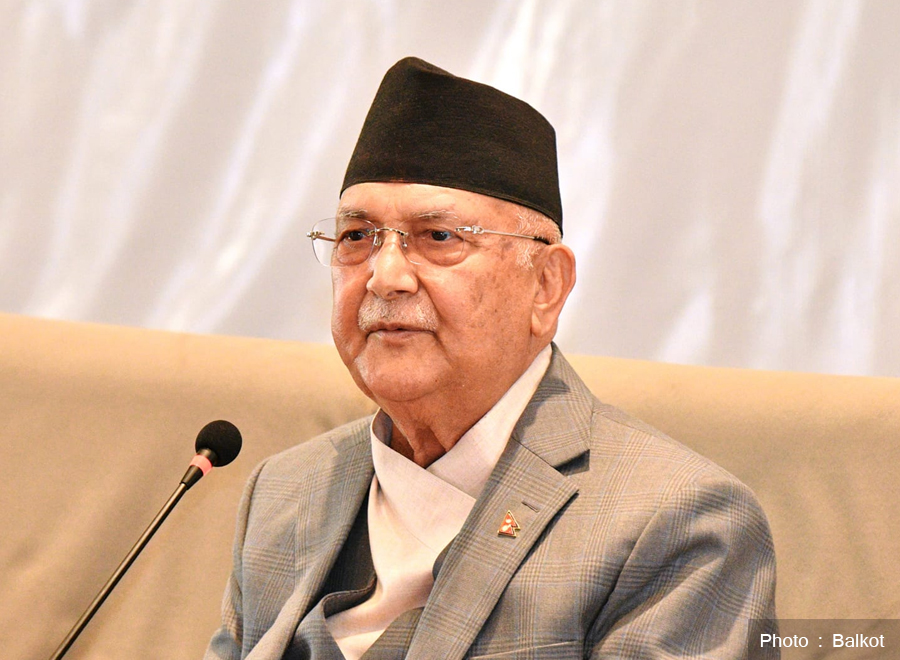IFRC expresses serious concern over the dissolution of the NRCS exec committee

London—The International Federation of Red Cross and Red Crescent Societies (IFRC) has expressed serious concerns over the Nepal government’s decision to dissolve the central executive committee of the Nepal Red Cross Society (NRCS) and form an ad hoc committee.
Responding to a query by South Asia Time, Herve Gazeau, Acting Head of Country Office, International Federation of Red Cross and Red Crescent Societies, in Kathmandu said (the IFRC is) aware of the Government decision related to the appointment of an Ad Hoc Committee for the Nepal Red Cross and that there have been investigations underway.
“The International Federation of Red Cross and Red Crescent Societies (IFRC) takes such matters very seriously and is always concerned when any government intervenes so directly in the internal workings of a Red Cross National Society and we have received reassurance from Government authorities on their continued commitment to respect and protect Nepal Red Cross Society’s humanitarian mandate, working in a manner that upholds the Fundamental Principles of the International Red Cross and Red Crescent Movement,” said Mr Gazeau adding,” All sides are doing everything possible to engage in meaningful dialogue to find long-term solutions for the Nepal Red Cross Society.
“IFRC is committed to supporting the Nepal Red Cross Society and its network of remarkable volunteers serving the people of Nepal as every year, thousands of people across Nepal rely on the Red Cross for a range of humanitarian services including the ongoing critical support during the COVID-19 pandemic, floods and landslides, as well as daily provision of blood and ambulance services,” Mr Gazeau added.
The IFRC’s official comments have come three days after the Government of Nepal dissolved the central working committee of the NRCS – an independent social organisation governed by its own statute—and formed a 33-member ad hoc committee led by Dr Netra Timsina. Most of the members of the ad hoc committee are close to the ruling Nepal Communist Party (NCP), reports said. Earlier, a probe committee formed by the government accused the previous committee of the NRCS of indulging in irregularities and not informing the government of receiving funds from abroad. Office bearers of the now dissolved committee refute such allegations and allege the government of carrying out a policy of witch-hunt against an independnet and neutral organisation.
The government’s unilateral action has come when a case is sub-judice at the country’s apex court. The District Administration Office (DAO), Kathmandu, had dissolved the central executive committee of the NRCS led by Sanjiv Thapa last year. When Mr Thapa knocked the doors of the court, the Supreme Court issued a stay order authorising the Thapa-led committee to continue. The government again approached the court urging it to review its decision. The apex court is yet to announce its final verdict.
‘Govt intervention for political purposes’
Meanwhile, talking to Global Nepalese online– a sister publication of South Asia Time– on Friday, President of the dissolved central working committee of the NRCS, Mr Sanjiv Thapa, alleged the Nepal government of intervening in a neutral organisation like Red Cross ‘for political purposes.’ “The government intervened and appointed its own cadres at a time when we were preparing to organise the (general) convention of our organisation,” said Thapa. He also refuted allegations of corruption during his tenure. “The government has so many agencies (to probe into alleged irregularities). We are ready to cooperate if they want to investigate. But you can’t blame others just to send your own people in an independent and neutral organisation,” he added.
Established in 1963, the Nepal Red Cross Society was recognized by the International Committee of the Red Cross (ICRC) in 1964 and affiliated to the International Federation of Red Cross and Red Crescent Societies (IFRC) in the same year. The largest humanitarian organisation in Nepal, the NRCS has its chapters in all 77 districts of the country and operaters through a nationwide network of volunteers as well as full-time employees. A significant portion of its activities are also borne by students and youth volunteers of Nepal Junior and Youth Red Cross Circles organized at schools, campuses and communities.

















Facebook Comments